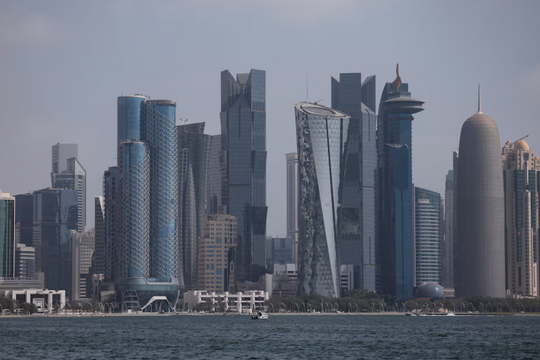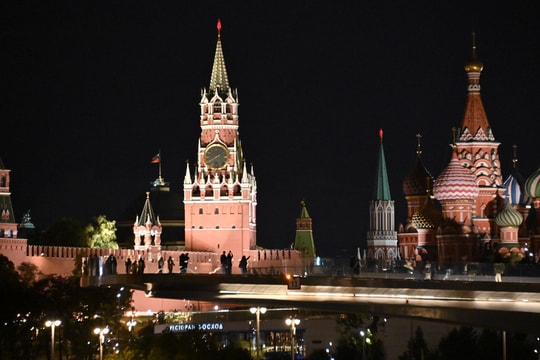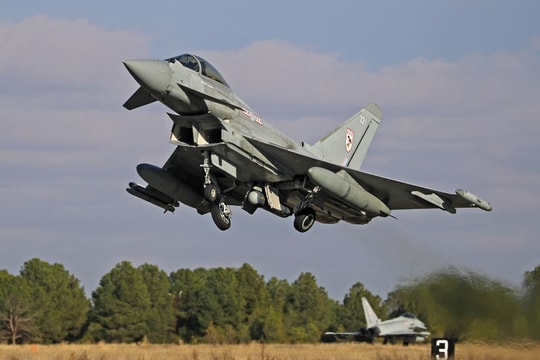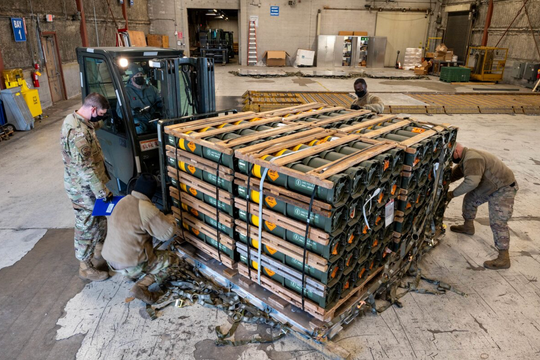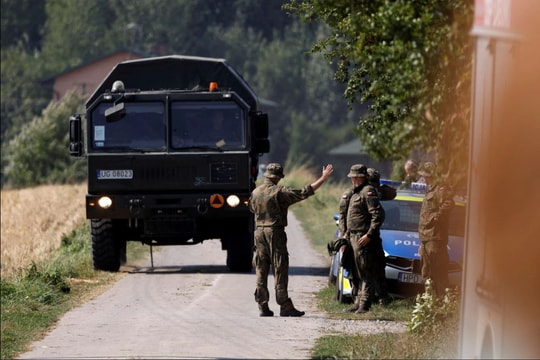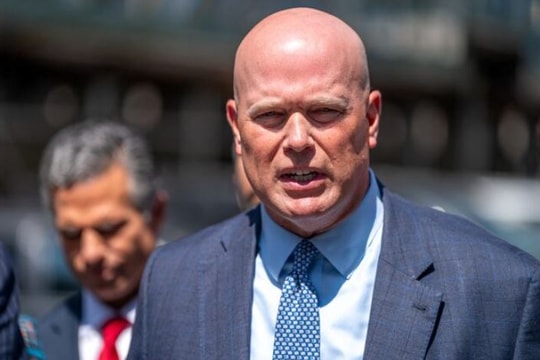NATO internal conflict over war in Ukraine
In recent weeks, the conflict in Ukraine has brought NATO members closer together, especially the US, UK, France and Germany, to counter Russia. However, this same war is also deepening cracks in the alliance.
WithNATOInitially, the conflict in Ukraine was a time for the alliance members to unite and heal the rifts. But now, is this conflict an opportunity to strengthen transatlantic cooperation or just deepen the divisions between the parties?
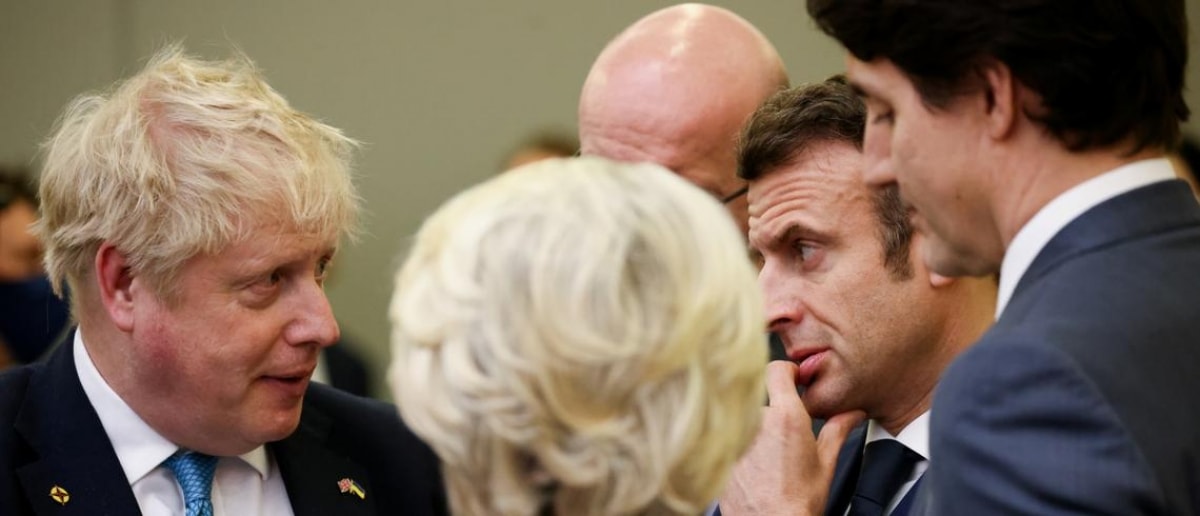 |
| British Prime Minister Boris Johnson and French President Emmanuel Macron. Photo: TRT World |
Different positions
Western allies have been divided over the purpose of the war in Ukraine, with French President Emmanuel Macron, German Chancellor Olaf Scholz and Italian Prime Minister Mario Draghi appearing to take a different stance from US and British officials.
Speaking in Washington, Italian Prime Minister Draghi said Western leaders should aim for "the possibility of achieving a ceasefire and restarting credible negotiations. In Italy and in Europe, everyone wants to end this violence."
"That is also our goal," Mr. Macron also made a similar comment at a press conference with the German Chancellor, saying that the only way to achieve peace is "Russia and Ukraine entering into negotiations." The French president also stressed that Western leaders should "support Ukraine to negotiate on terms they decide," while Mr. Draghi and Mr. Scholz stressed that there should be no terms imposed on the Ukrainian people.
Meanwhile, with the support of long-range and heavy weapons from the West, Ukrainian Foreign Minister Dmytro Kuleba said: "The end of the war in Ukraine is the liberation of the occupied territories. Russia will have to pay for everything, including the damage to our country."
And Ukraine’s broader goal, to retake Crimea and the areas claimed by the self-proclaimed Donetsk and Lugansk People’s Republics, appears to be gaining support from Britain and the United States, which are expanding the war’s aims.
Although the White House walked back President Biden's comments in April that hinted at regime change in Russia, US Defense Secretary Lloyd Austin soon went further than those statements.
"We want to see Russia weakened to the point where it can't do things like attack Ukraine," the US defense secretary said.
“We believe we can win – they (Ukraine) can win if they get the right weapons and support,” he also asserted.
British Foreign Secretary Liz Truss and British Defense Secretary Ben Wallace also spoke out in support of Ukraine and talked about pushing Russia out of Crimea and Donbass.
While Western European leaders want the war to end quickly and things to "return to normal" as soon as possible, Ukrainian, British and American leaders are counting on the possibility of a prolonged conflict with greater Western intervention and advanced weapons.
"Nothing is impossible, but I don't see any prospect of us being able to normalize relations with Russia now," British Prime Minister Boris Johnson said.
Some fear that Russia is only proposing de-escalation and negotiations to divide the Western allies, but it is clear that even without any moves, divisions have always existed among NATO members.
National interest first or NATO first?
The distinct interests of individual NATO members are increasingly evident in the conflict in Ukraine, especially Germany.
Despite making landmark foreign policy announcements such as halting the Nord Stream 2 project, increasing the defense budget and pledging to stop importing Russian energy, Berlin remains dependent on Moscow for oil and gas.
From the US perspective, Germany’s dependence on Russian energy will always make Berlin “go easy” on Moscow. These US concerns are based on three bases. First, it is clear that Germany’s dependence on Russian oil and gas will increase Moscow’s influence in the region and harm the relationship between Germany and the US.
Second, the improving energy relationship between Germany and Russia threatens transatlantic cooperation. Third, Germany and France’s reluctance to impose sanctions on Russia and their reluctance to supply heavy weapons to Ukraine could deepen divisions within NATO.
The worst-case scenario for Germany and France is that the war in Ukraine will drag on, amid provocative statements by the US and UK against President Putin and the provision of more heavy weapons and drones to Ukraine.
Such a war risks going beyond borders and threatening Europe more than the US as Washington's goal is said to be to keep Russia "busy" in Ukraine so that it cannot increase its military influence in other areas such as Syria, the Eastern Mediterranean and Libya.
Speaking at a joint press conference with European Parliament President Roberta Metsola in Berlin, German Chancellor Olaf Scholz said European countries should be cautious in assessing sanctions against Russia.
Chancellor Scholz warned that "sanctions need to affect the aggressor but at the same time we should ensure that they have a minimal impact on our economy and we should maintain that." He also said that the ongoing conflict in Ukraine could undermine the European economy and security.
Clearly, unlike the UK and the US, Germany and France face more difficult choices. While these two countries support a policy of supplying weapons and military equipment to Ukraine at a “record pace” and imposing sanctions on Russia for the war in Ukraine, Germany and France still want to continue maintaining relations with Russia in the energy sector and prioritize economic interests.
Different positions in Germany, the US, the UK and France on Russia's objectives in the military campaign in Ukraine are constantly changing and the conflict in Ukraine can be seen as a test of NATO unity.
NATO is currently facing enormous challenges due to differences in security and diplomatic relations between its member states as well as internal problems in each country. Ultimately, each country wants to uphold a simple principle: that safety must come first./.

